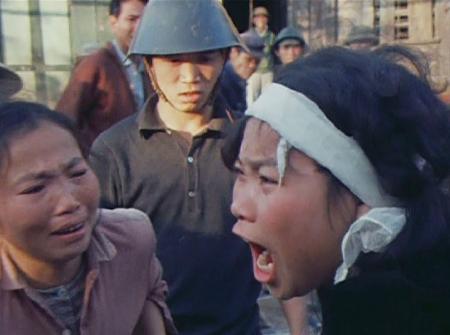Vietnam War: A Thousand Films, One Harsh Reality
The Vietnam War, a conflict that deeply scarred a generation and continues to resonate in global politics and culture, has been immortalized – and often mythologized – on screen. From Hollywood blockbusters to independent documentaries, thousands of films have attempted to capture the brutality, the complexities, and the lasting impact of this devastating war. But behind the cinematic spectacle, lies a harsh reality often overlooked. This article delves into the diverse cinematic portrayals of the Vietnam War, examining their strengths and weaknesses, and ultimately highlighting the enduring importance of understanding the true human cost.
Hollywood's Take: Triumphs and Traumas
Hollywood's depiction of the Vietnam War has been a rollercoaster of narratives. Early films, often reflecting the prevailing pro-war sentiment of the time, presented sanitized versions, focusing on heroic soldiers and minimizing the civilian casualties and the psychological toll. However, as the public perception shifted, so did the cinematic portrayal.
The Shift in Narrative: From Glory to Grime
- Early Pro-War Narratives: Films like The Green Berets (1968) exemplified this early approach, promoting a patriotic narrative that largely ignored the war's complexities.
- The Anti-War Movement's Influence: The tide turned with films like Apocalypse Now (1979) and Platoon (1986), which offered unflinching portrayals of the war's brutality, the moral ambiguities faced by soldiers, and the devastating psychological impact on veterans. These films used visceral imagery and unflinching realism to depict the horrors of combat.
- Diverse Perspectives: More recent films, such as The Deer Hunter (1978) and Full Metal Jacket (1987), explored the experiences of soldiers from diverse backgrounds, highlighting the psychological trauma of war and the lasting impact on their lives.
These films, while often powerful and critically acclaimed, still faced criticism for sometimes prioritizing spectacle over accuracy and nuance.
Beyond Hollywood: Independent Voices and Documentaries
Beyond the blockbuster narratives, independent filmmakers and documentary makers have offered alternative perspectives on the Vietnam War. These often overlooked films provide crucial context and perspectives missing from mainstream productions.
Documentaries: Unveiling the Truth
Documentaries like Hearts and Minds (1974) and Fog of War (2003) have played a significant role in challenging conventional wisdom and presenting a more nuanced understanding of the conflict. These films often feature firsthand accounts from veterans, civilians, and political figures, giving voice to those often marginalized in Hollywood productions.
Independent Films: Filling the Gaps
Independent films have often explored the experiences of specific groups affected by the war, such as Vietnamese civilians or female soldiers, providing valuable insights into the often-ignored aspects of the conflict. These narratives offer a crucial counterpoint to the predominantly American-centric perspective often seen in Hollywood productions.
The Harsh Reality: Beyond the Screen
The myriad of films about the Vietnam War, while offering valuable insights into this complex historical event, should not overshadow the harsh reality experienced by millions. The human cost – the staggering number of casualties, the widespread destruction, and the long-term social and environmental consequences – remains a stark reminder of the devastating consequences of war.
- Civilian Casualties: The immense suffering of Vietnamese civilians is often minimized in cinematic depictions, a crucial aspect that needs greater attention.
- Agent Orange's Legacy: The lasting impact of Agent Orange, a defoliant used during the war, continues to affect generations of Vietnamese people. Its devastating effects are rarely explored in depth in films.
- The Psychological Toll: The psychological trauma experienced by both American and Vietnamese veterans is a persistent legacy of the war, frequently understated in many films.
A Call to Critical Viewing
To truly understand the Vietnam War, it's crucial to approach cinematic depictions critically, recognizing both their artistic merit and their potential biases. By engaging with a diverse range of films, including independent productions and documentaries, alongside thorough historical research, we can develop a more comprehensive and nuanced understanding of this pivotal historical event and its lasting impact. This understanding is crucial to preventing future conflicts and honoring the memory of those who suffered. Further research into the history of the Vietnam War is highly recommended for a richer and more informed perspective.
